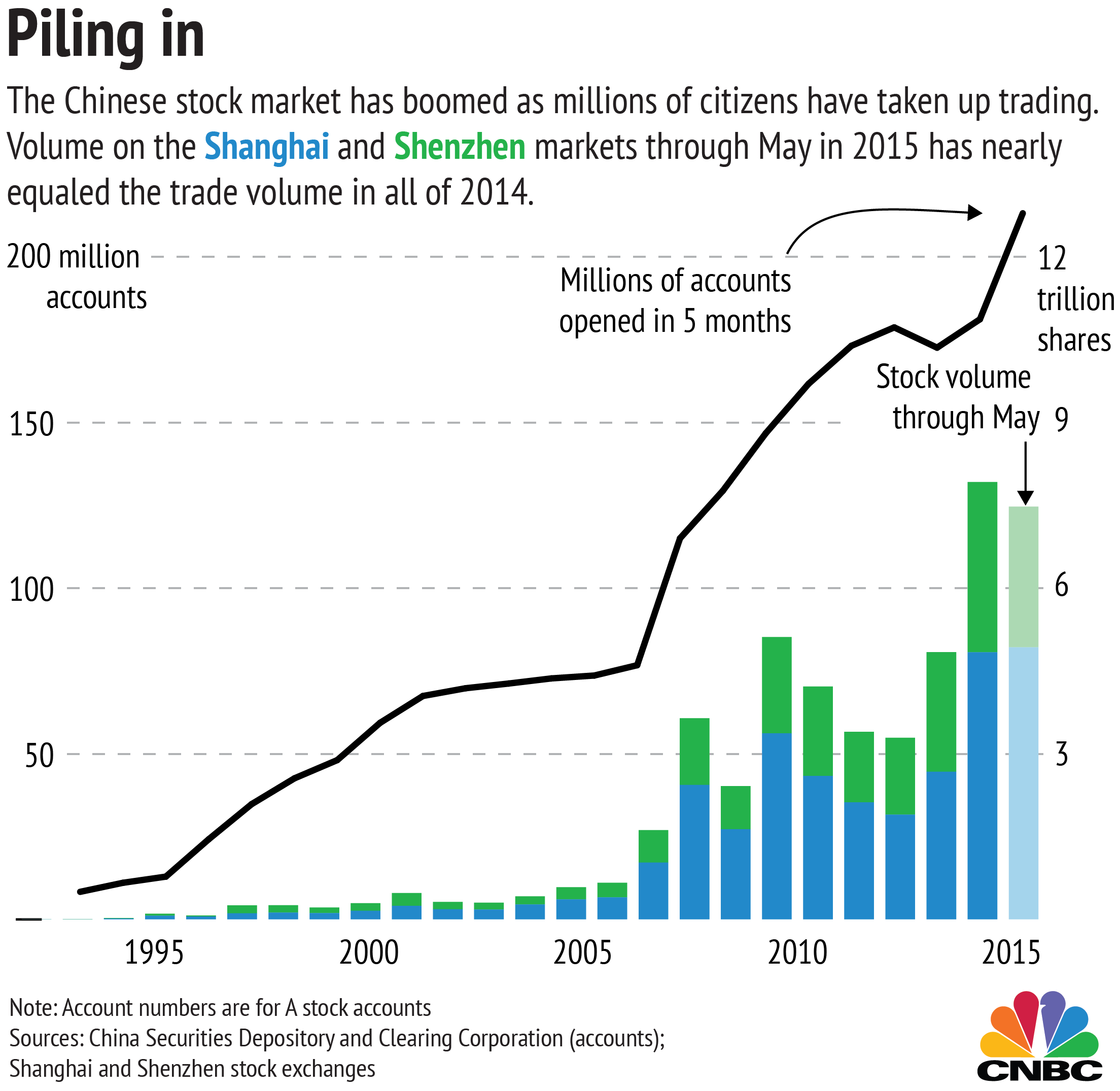The Chinese stock market has shed $3.25 trillion (and counting) since June 12.
“I know people who sold their houses to invest in stocks. Now they’re finished,” one man told CNN outside a Shanghai brokerage.
See Also: Ron Paul: U.S. needs ‘a revolutionary change in our economic thinking’
China’s 25-year-old Stock Market: is this the end?
If you’ve been following the global business headlines this week then you may have come across the spectacular freefall of the Chinese stock market. Let’s just say this: if you think this is the end of the freefall of the economic powerhouse’s stock market then you ain’t seen nothing yet.
In an astonishing turn of events, the country’s Shanghai Composite Index, the most prominent stock exchange in the nation, dropped 30 percent. In the same timeframe, ChiNext, a speculative exchange, fell 42 percent.
Over the past year, traders and investors helped Shanghai to soar 150 percent, and other markets in China experienced pretty much similar results. However, those first-year traders are leveraging their positions and selling at an astronomical rate. Too bad they mortgaged their homes.
Essentially, as MarketWatch‘s Howard Gold writes: “It was the biggest rout in this volatile market since 1992.”
What was once considered the next global economic juggernaut is now the laughing stock of those on the outside looking in. But what the heck happened to the Asian powerhouse? Wasn’t this supposed to the century of Asia, particularly China? Wasn’t China supposed to be different?
Well, one can find the answer simply by looking at the skylines of China’s major metropolitan cities. Since the globe’s Great Recession, the People’s Bank of China (PBOC) has followed the suit of former Federal Reserve Chair Ben Bernanke and has printed money at an immense rate. This produces distortions in the marketplace and now the economy could very well self-destruct as a result.
Indeed, this could have greater implications to the world economy than Greece’s mini-crisis would ever have. China is the biggest economy in the world, while Athens is just a grain of sand. A collapse of Greece has very little significance, while China is an important asset not just to the United States but to the rest of the world.
Similar to the dot-com bubble or the subprime mortgage buggle in the U.S., China showed signs of a bubble over the past couple of years. This meant that nearly every single Chinese person delved into the stock market. When a pizza delivery person or a 95-year-old grandmother starts tossing their money into the market then you can garner a hint that something terrible is about to happen.
CNBC posted a chart to show the vast participation in China:

Government Steps in to Save Everyone
Of course, like any interventionist country, big government has stepped in and is attempting some reprieve by throwing everything at the stock market, including the kitchen sink. Sound familiar?
Keynesian economist Paul Krugman must be getting all wet…
The PBOC cut interest rates for the fourth time this year, state-owned investment firms are buying up ETFs and regulators have boosted the category of assets to use as collateral to purchase stocks, which includes homes. Good luck, China!
Investors aren’t hopeful that government action will work. The stock market continues to close anywhere between five and 10 percent down at the end of each trading session. At least American, Canadian and British investors are somewhat safe because Chinese shares are only foreign-owned by 1.5 percent. What many fear is the economic impact it would have on a fragile global economy.
Just because we thought China was smarter than the U.S. it doesn’t mean markets aren’t prone to the boom-bust cycles notorious throughout the world right now.
See Also: Puerto Rico Governor: $72 billion debt ‘is not payable’
Look on the bright side: if you ever wanted to enter the Chinese stock market, or tap into Asia, then wait a while and perhaps you could purchase stocks at bargain prices. Like the Fed, the PBOC will just continue to pump the system with money and prevent the market from correcting itself.
Perhaps this is the perfect illustration of Beijing right now, courtesy of one Chinese article (via the Washington Post):
“When the economy is doing well, the stock market drops. When the economy is doing poorly, the stock market shoots up. It seems like when the economy is doing well, we all go to work and earn money. When the economy is doing poorly, we all gather in the village entrance to gamble,” the post says.”
Leave a Comment